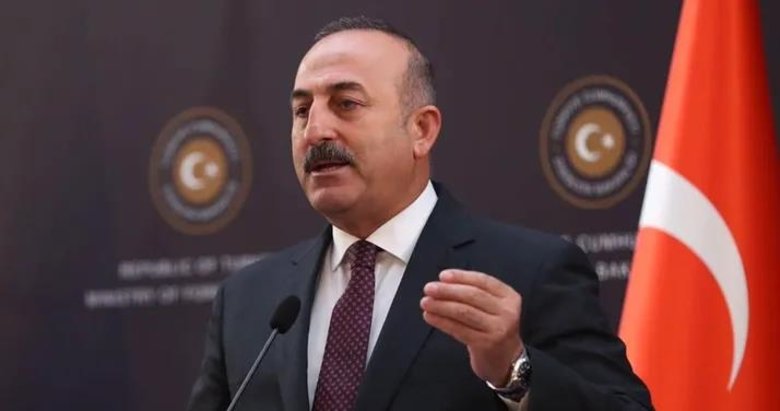Nordic Monitor
A judicial document has confirmed that Turkish educators, academics and representatives of NGOs who had been listed by Turkish diplomats in Ljubljana were indicted on dubious terrorism charges by a Turkish prosecutor.
As seen in several cases, the document revealed how the information collected by the embassy was later used in a criminal indictment of critics and their families on charges of terrorism.
According to a December 11, 2018 decision by prosecutor Birol Tufan, the Ankara Chief Public Prosecutor’s Office launched a separate investigation (file no. 2018/223329) into Turkish nationals who were listed in espionage files dispatched by Turkish diplomats in Slovenia without any concrete evidence of wrongdoing.
Nordic Monitor had earlier released a Turkish Embassy note profiling education and cultural centers as if they were part of a criminal enterprise. Ambra Izobraževanje Kultura in Truzem D.O.O, an educational and culture organization that was set up in 2005; an intercultural center called Društvo Medkulturni Dialog; and the Ambra Jezikovni Center, which offers language courses in English and Turkish, were among the organizations that were included in the embassy note. The new judicial document reveals that representatives of those organizations were also listed by Turkish diplomats in Ljubljana.
Judicial documents dated December 11, 2018 exposed how the spying activities of the Turkish Embassy in Ljubljana triggered a criminal investigation in Turkey. (The names and addresses of the Turkish nationals have been redacted for security reasons.):
Following a coup attempt in Turkey in July 2016, Turkish embassies and consulates became tools of spying in the hands of Turkey’s Islamist rulers. Turkish diplomatic and consular missions around the world have systematically spied on critics of President Erdoğan, profiled their organizations and listed their names as if they were part of a terrorist organization. Working as a teacher in a Gülen-inspired school or contributing to non-profit institutions affiliated with the movement abroad are considered to be acts of terrorism by the Erdoğan government.
It is clear that Turkish diplomatic missions violate the domestic laws of receiving states and the principles of international law by conducting unlawful information-gathering campaigns and sweeping intelligence operations. Erdoğan’s envoys enjoyed the privileges and immunities described in the international conventions while they systematically spied on critics of the president, collected information on Turks living abroad and transmitted it to headquarters. Those documents exposed clandestine spying activities in Slovenian territory that targeted critics as part of President Erdoğan’s long arm.

In February Foreign Minister Mevlüt Çavuşoğlu confirmed clandestine spying operations by Turkish diplomats on foreign soil. Çavuşoğlu said Turkish diplomats assigned to embassies and consulates have officially been instructed by the government to conduct such activities abroad. “If you look at the definition of a diplomat, it is clear. … Intelligence gathering is the duty of diplomats,” Çavuşoğlu told Turkish journalists on February 16, 2020 following the Munich Security Conference, adding, “Intelligence gathering and information collection are a fact.”
In his interview with The Globe and Mail, Turkish Ambassador to Canada Kerim Uras also admitted to spying on 15 Turkish-Canadians. “Any embassy would focus on the threats targeting their countries. That’s what every embassy does,” he told The Globe and Mail.
Turkish Ambassador to Uganda Kerem Alp spoke to the state-run Anadolu news agency in March and confirmed that Turkish diplomats collect information on the business activities of Erdoğan critics living abroad and profile their companies as if they were part of a terrorist organization. Alp also revealed how the embassy was gathering information on medical staff, educators and humanitarian volunteers working for Ugandan institutions. “There were some FETO followers who had sought to hide in Uganda and were working in schools or hospitals. … They have been disguising themselves as humanitarian workers,” he told the news agency. FETO is a derogatory term coined by the Turkish government to refer to the movement.
The Turkish government has also benefited from the pro-Erdoğan networks and organizations of the Turkish diaspora. In the last couple of years Turkish diaspora associations have been accused of acting as the long arm of the Erdoğan regime in Europe, and some of them have been put under surveillance by local intelligence agencies. After the coup attempt, some European countries launched investigations into Turkish imams linked to Turkey’s Religious Affairs Directorate (Diyanet), an ideological and political state apparatus tasked with spreading Erdoğan’s political Islamist ideology both inside and outside the country.

As previously disclosed by Nordic Monitor, the foreign ministry sent lists of profiled Turkish nationals in two CDs to the Ankara Chief Public Prosecutor’s Office, the national police and Turkey’s intelligence agency MIT on February 19, 2018 via an official document for further administrative or legal action, the punishment of their relatives back in Turkey and the seizure of their assets.
Then, public prosecutor Adem Akıncı, who received the foreign ministry document on February 23, 2018, forwarded the classified CDs including information on 4,386 Erdoğan critics to the Organized Crimes Unit of the Ankara Police Department for further action. The police conveyed the results of its investigations to the public prosecutor.
According to judicial documents released by the Ankara 4th High Criminal Court on January 16, 2019, the foreign ministry compiled a long list of foreign entities that were owned and/or operated by people who were seen as close to the Hizmet/Gülen movement, a group critical of the Turkish government, in 92 countries in the Americas, Europe, Asia and Oceania.
Moreover, Nordic Monitor revealed how MIT infiltrated refugee camps in Greece in order to spy on opponents who were forced to flee to Greece to escape an unprecedented crackdown in neighboring Turkey.












